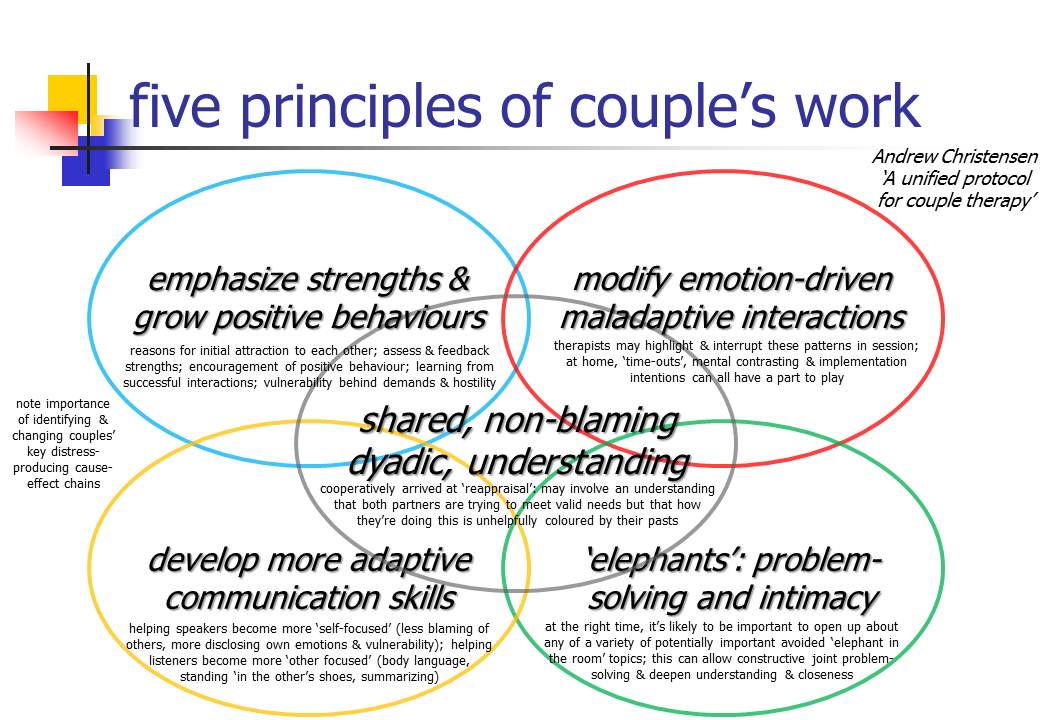Andrew Christensen's "Unified protocol for couple therapy" - the five principles (four & five) and guiding functional analysis
Last updated on 11th September 2011
In yesterday's post I discussed the first three of Andrew Christensen's "five principles" of a "Unified protocol for couple therapy". Today I'd like to talk about his fourth and fifth principles - foster productive communication (develop more adaptive communication skills) and emphasize strengths and encourage positive behavior. The five principles are illustrated in the following diagram (downloadable both as a PDF file and as a Powerpoint slide):

